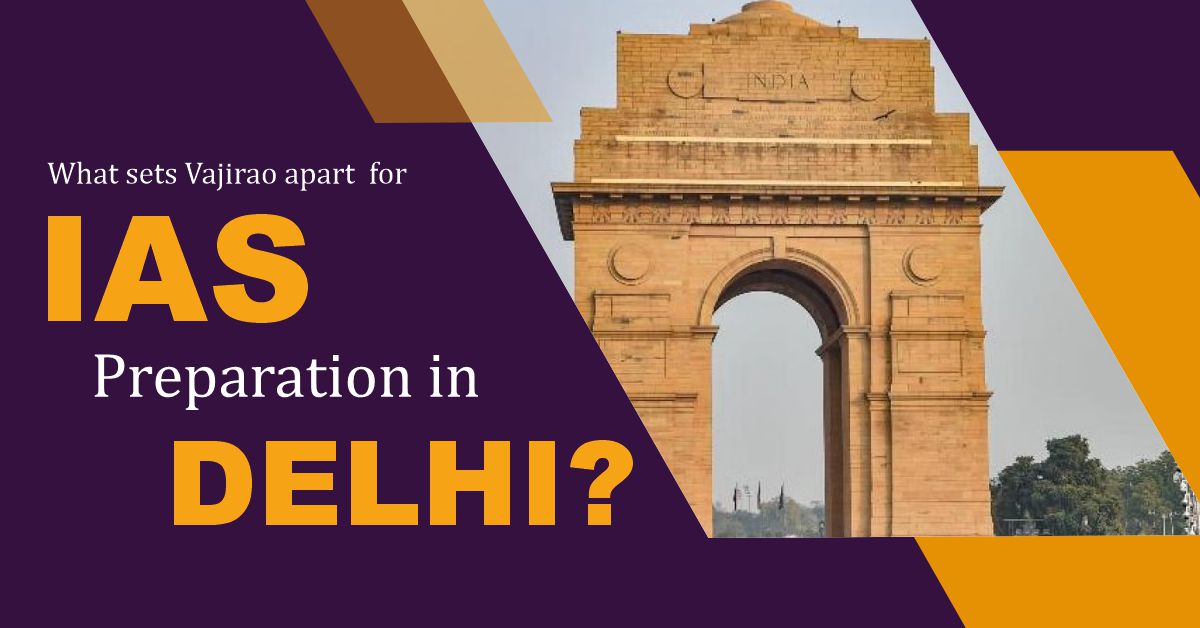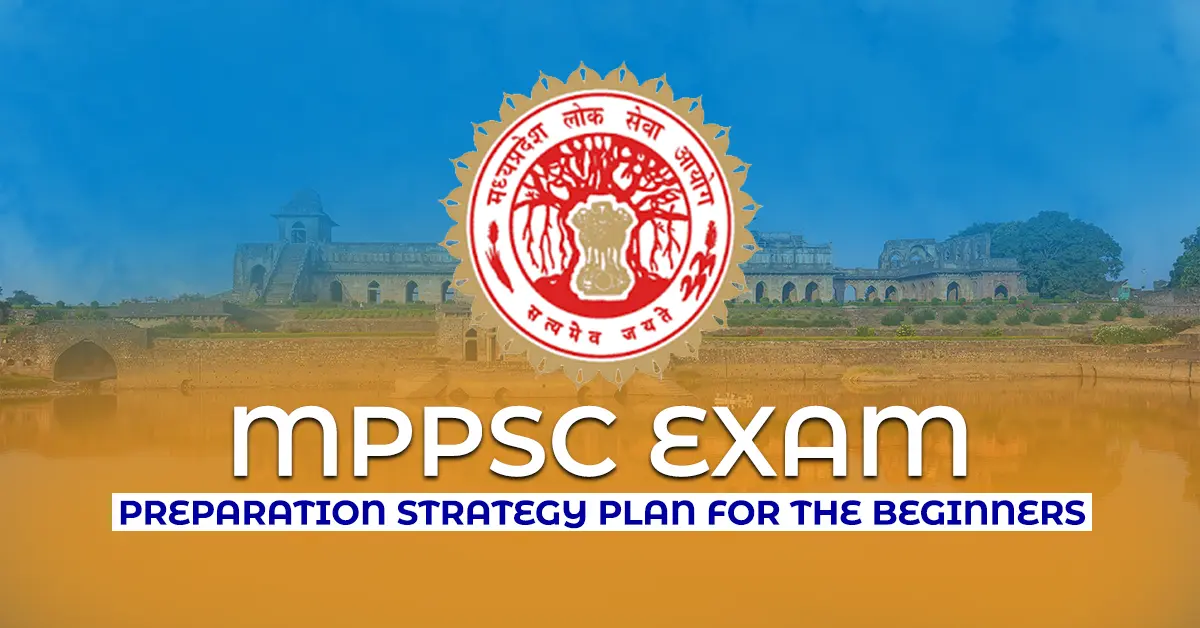When it comes to cracking the UPSC Prelims, every aspirant yearns for that winning edge. With so much at stake and countless topics to cover, it’s only natural to fear making silly mistakes that could cost you your dream of becoming a civil servant. Luckily, the experts at Vajirao IAS Academy, the best IAS coaching institute in Delhi have compiled a comprehensive guide on how to avoid these blunders and maximize your chances of success. From time management techniques to effective study strategies, this article will equip you with the best advice to navigate the treacherous waters of UPSC Prelims and emerge victorious. So grab your pen and paper, because it’s time to leave no room for error in this crucial examination!
Another essential aspect is practicing with previous year question papers. Vajirao IAS Academy provided a comprehensive collection of these papers and urged us to solve them regularly. This allowed me to identify recurring patterns and understand the type of questions often asked in the exam. It also helped improve my time management skills and build confidence in tackling different question formats.
Common mistakes candidates make in UPSC Prelims
One common mistake that candidates make in UPSC Prelims is not adequately studying the previous year’s question papers. Many candidates focus solely on studying textbooks and reference materials, without giving due importance to analyzing the pattern and types of questions asked in previous years. By not doing so, they miss out on important trends and topics that have been repeatedly asked which could give them an edge in the exam.
Another mistake is underestimating the importance of revision. Candidates often spend a significant amount of time preparing for UPSC Prelims but fail to allocate enough time for revision. This can be detrimental as it leads to forgetting concepts or not being able to recall information during the exam. Regular revisions help reinforce knowledge and ensure better retention of facts, thereby increasing the chances of scoring well in the examination.
Additionally, many candidates make errors by relying heavily on their own judgment while attempting mock tests or practice papers. They trust their instincts without thoroughly analyzing each option or considering all possible angles before selecting an answer. This impulsive decision-making can result in choosing incorrect options even when one knows the correct answer initially, leading to unnecessary loss of marks.
Avoiding these common mistakes can significantly improve a candidate’s performance in UPSC Prelims.
Understand the exam pattern and syllabus
Understanding the exam pattern and syllabus is crucial when it comes to preparing for the UPSC Prelims. The Civil Services Examination is known for its challenging nature, and having a clear understanding of what to expect can make a significant difference in your preparation strategy. The preliminary examination consists of two papers – General Studies Paper 1 and General Studies Paper 2 (CSAT). While Paper 1 evaluates your knowledge on subjects like history, geography, economics, science, etc., Paper 2 tests your aptitude and reasoning skills.
When it comes to understanding the syllabus, aspiring candidates should not just have a surface-level understanding but delve deep into every topic mentioned with the best UPSC Coaching Centers in Delhi. Each subject or topic within the syllabus has multiple dimensions that need to be explored thoroughly. This will help in gaining an in-depth understanding of each concept and ensure that you are able to answer questions asked from different angles during the exam. Moreover, knowing the weightage given to various topics will help you prioritize your preparation accordingly.
In addition to taking note of the exam pattern and syllabus, it is equally important to focus on the previous year question papers. By analyzing past years’ trends, you can get a sense of which topics are frequently asked and areas where more attention needs to be directed. It will also give you an insight into how questions are framed and provide valuable practice material for your preparation.
Focus on conceptual understanding, not rote learning
When preparing for the UPSC Prelims, it’s easy to get caught up in memorizing facts and figures. But, the key to success lies in developing a deep conceptual understanding of the subjects. Rote learning might help you answer specific questions, but it won’t equip you with the analytical skills needed to excel in the exam.
Conceptual understanding allows you to grasp the underlying principles and connect different concepts together. It enables you to interpret information critically and apply your knowledge effectively. By focusing on concepts rather than memorization, you’ll be better equipped to deal with unpredictable questions that require logical thinking and problem-solving abilities.
Moreover, conceptual understanding stays with you long after rote memorization fades away. As time passes, facts may become outdated or new information may emerge, rendering your rote-learned knowledge obsolete. On the other hand, by developing a solid foundation of conceptual understanding which is aptly granted at the best civil services coaching centers in Delhi, you can adapt and build upon it as necessary.
While rote learning might provide short-term benefits in terms of answering specific questions correctly, it doesn’t foster critical thinking or analytical skills which are crucial for cracking competitive exams like UPSC Prelims. Instead of focusing solely on memorization, invest time in building a strong conceptual foundation that will serve as a valuable asset throughout your career as an aspiring civil servant.
Practice time management and prioritize topics
Practice time management and prioritizing topics is crucial for success in any competitive exam, especially the UPSC Prelims. With a vast syllabus to cover and limited time, it becomes essential to allocate your study hours efficiently. One effective way to manage time is by creating a study schedule or timetable. Prioritize the topics based on their weightage and difficulty level, and allocate sufficient time for each one.
Another important aspect of effective time management is practicing smartly. Instead of aimlessly reading through textbooks or cramming information, focus on active learning techniques such as solving previous year question papers, taking mock tests, and participating in group discussions. This not only helps in retaining the information better but also lets you identify weak areas that need more attention.
When it comes to prioritizing topics, start with subjects or sections that carry higher marks weightage or those that you find particularly challenging. By tackling difficult topics early on, you ensure that you have ample time to understand them thoroughly and seek help if needed. However, don’t neglect other subjects entirely – remember to maintain a balanced approach by covering all areas of the syllabus.
Managing your time effectively and prioritizing topics in your UPSC Prelims preparation can make a huge difference in your performance. By creating a study schedule tailored to your needs, practicing actively through mock tests and discussions, and focusing on challenging topics first while maintaining overall balance – you will be well-equipped to avoid silly mistakes and ace the exam with confidence.
Develop a systematic revision strategy
Developing a systematic revision strategy is crucial for success in the UPSC Prelims examination. It helps to consolidate your knowledge, identify and fill any gaps in understanding, and build confidence. One effective approach is to create a revision timetable that allocates specific time slots for each subject or topic. This helps you manage your time effectively and ensures you cover all the important areas before the exam. Additionally, breaking down your revision into smaller chunks can also make it feel less overwhelming and more manageable.
Another useful strategy is to adopt different techniques for revision, such as active recall, spaced repetition, and summarizing information. Instead of simply reviewing notes or textbooks, active recall requires actively retrieving information from memory. This can be done by reciting key points or teaching concepts to someone else. Spaced repetition involves revisiting information at intervals over time to reinforce learning and aid long-term retention.
Summarizing information in your own words not only enhances comprehension but also provides an opportunity to identify any areas of weakness that need further review. Incorporating these strategies into your revision routine can help deepen your understanding of the topics while improving memory retention. By developing a systematic approach tailored to suit your learning style, you will be better equipped to face the UPSC Prelims examination with confidence and avoid silly mistakes.
Conclusion: Stay calm, confident, and avoid silly mistakes
In conclusion, staying calm and confident is crucial when it comes to avoiding silly mistakes in the UPSC Prelims. The pressure and time constraints can often cause candidates to make careless errors. By maintaining a calm and composed mindset, you will be able to think more clearly and avoid falling into the trap of rushing through questions without properly analyzing them. Such methods and techniques are always taught at IAS Coaching in Delhi.
Additionally, it is important to pay attention to detail and not overlook any instructions or keywords in the question paper. It is easy to get carried away with answering quickly but taking a moment to thoroughly understand each question can save you from making silly mistakes. Moreover, double-checking your answers before submitting your paper can help catch any errors that may have been made due to oversight or confusion.
Lastly, practice makes perfect. Continuously working on mock tests and previous years’ question papers will not only enhance your knowledge but also improve your accuracy. The more familiar you become with the exam pattern and question types, the better equipped you will be at avoiding common pitfalls that lead to silly mistakes.
By following these strategies of staying calm, paying attention, double-checking answers, and practicing diligently, you will significantly reduce the chances of making silly mistakes in UPSC Prelims exam. Remember that even small errors can have a significant impact on your overall score, so dedicating extra effort towards minimizing them is well worth it. Stay focused, believe in yourself, trust your preparation, and success will surely follow.




